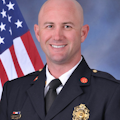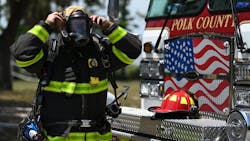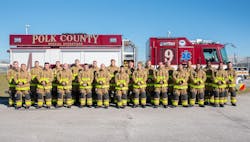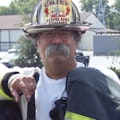Fire departments generally have been considered the foundation of their community and a group to turn to during times of trouble. This always wasn’t the case, and it didn’t happen by chance.
This is the result of an untold number of personal contacts that were made continually throughout the history of our nation’s firehouses and their past members’ faithful service. Many of you who are reading this discovered long ago that we no longer are just a “fire department.”
Those who are new to the fire service quickly will understand that we evolved into an all-hazards response force capable of mitigating any incident and deploying to anywhere in the world. Nevertheless, the people we swore to protect always will know us as their fire department. We must remember this every single time that we are called upon for service, no matter what issue might arise.
Endurance
Firefighters must be able to adapt on the fly. This is because of our communities’ ever-increasing expectations and demands. As it stands, the current situation has many firefighters on the front lines battling the COVID-19 pandemic.
Exhausting is the only word that I can use to describe our current state. However, make no mistake about it, we must remember to look beyond the horizon for upcoming challenges and begin to develop solutions for them. This places a heavy burden on organizations and government leaders regarding the direction that we should or shouldn’t be going in. We are pulled blindly through the smoke at times by elected leaders, and yet we still are expected to find our way out.
We must be cautious when dealing in the political arena and remember where our true loyalties lie: the community. It’s extremely important for everyone to understand the relationship between fire operations and fire administration. This relationship never should be adversarial. Administration strives to supply and support you as best as possible, so you can operate efficiently and effectively in the field.
Leave the political challenges for your chief to handle; you have your own battles to respond to.
Hold the line.
Engagement
It’s time to get out and make some connections. Whether you are on duty or off duty, I urge you to make conversation with at least one random person. You might be surprised where this small talk might lead and who it turns out that you are speaking with.
This might very well be the first interaction that an individual had with a firefighter, so make it count. Many people are unaware of what you do on a daily basis—my mother being one of them.
We must continue to educate the public on what services we provide and how those people can become better prepared to deal with medical, fire and environmental emergencies. This crucial process is known as community risk reduction, and it’s invaluable.
I strongly recommend that you invest back into your community as it invests in you. Your simple act of kindness not only could turn someone’s bad day around but potentially could result in saving that person’s life one day.
Hold the line.
Forging ahead
In 1519, Spanish explorer Hernán Cortés sailed to the new world with a crew of about 600. His intentions were clear: locate and capture reported treasure in the area. When many of his crew began to second guess themselves and their mission, Cortés ordered them to burn the ships. This was a simple solution for Cortés. This ensured that his team gave 100 percent devotion to the cause and implanted the notion that failure wasn’t an option.
No matter what challenges we face, we must remember that we must keep moving forward. I advise you to “burn the ships.” The men and women to the left and right of you swore loyalty not only to the badge but also to one another. This is our obligation to bear.
Hold the line.
About the Author

Codi Donahoe
Codi Donahoe is a captain/paramedic with Polk County, FL, Fire Rescue. He joined the fire service in 2006. Donahoe holds an associate degree in fire science technology and a Bachelor of Science in emergency management. He received the Fire Officer designation from the Center for Public Safety Excellence and graduated from the National Fire Academy’s Managing Fire Officer Program (MO).
Billy Goldfeder
BILLY GOLDFEDER, EFO, who is a Firehouse contributing editor, has been a firefighter since 1973 and a chief officer since 1982. He is deputy fire chief of the Loveland-Symmes Fire Department in Ohio, which is an ISO Class 1, CPSE and CAAS-accredited department. Goldfeder has served on numerous NFPA and International Association of Fire Chiefs (IAFC) committees. He is on the board of directors of the IAFC Safety, Health and Survival Section and the National Fallen Firefighters Foundation.


